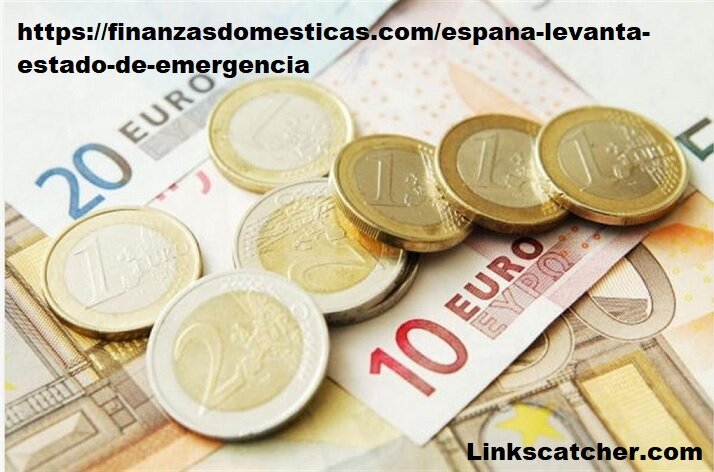
Spain is navigating through turbulent economic waters as it faces a recession https://finanzasdomesticas.com/economia-de-espana-en-recesion that impacts households and businesses alike. The once vibrant economy has seen shifts in income levels, unemployment rates, and industry performance. With the pandemic’s lingering effects, many are left wondering how deep this downturn will go and what recovery might look like. Join us as we delve into the current state of Spain’s economy, explore trends across various sectors, and offer insights on strategies to weather this storm. Discover how you can adapt your finances in these challenging times while staying informed about emerging opportunities for growth.
Economy of Spain in Recession: https://finanzasdomesticas.com/economia-de-espana-en-recesion
Spain’s economy is in a precarious state as recession takes hold, affecting countless citizens. The impact is felt through declining consumer confidence and reduced spending power, leading to an overall contraction in economic activity.
Trends indicate a surge in unemployment rates and a slowdown across key sectors. Services, tourism, and retail have all taken significant hits. As businesses grapple with rising costs and diminished demand, many are reevaluating their strategies to adapt to this challenging landscape. Understanding these dynamics is crucial for navigating the uncertainties ahead.
Economic Projections and Recovery
Spain’s economy faces significant challenges as it navigates through recession. Economic projections suggest a slow recovery, with growth expected to resume gradually over the next few years. Analysts emphasize that structural reforms and strategic investments are crucial for revitalizing the economy.
The recovery hinges on consumer confidence and increased spending. Key sectors must adapt to new market realities while embracing innovation. As Spain moves forward, attention will need to be focused on sustainable practices that support long-term economic health amidst ongoing uncertainties in global markets.
Impact on Household Incomes and Unemployment
The recession in Spain has significantly impacted household incomes, leading to a decline in disposable income for many families https://finanzasdomesticas.com/economia-de-espana-en-recesion Job losses and reduced working hours have forced households to tighten their budgets, prioritizing essential expenses over discretionary spending.
Unemployment rates have surged as businesses struggle to stay afloat. Young workers and those in vulnerable sectors feel the brunt of this crisis most acutely. As job security dwindles, the need for effective financial management becomes increasingly crucial for navigating these challenging economic times.
Analysis of Other Countries in Recession
Several countries are grappling with recession, each facing unique challenges. Nations like Italy and Greece struggle with high debt levels and sluggish growth. Their economies heavily rely on tourism, making them particularly vulnerable to global disruptions.
Similarly, the UK has experienced a contraction due to inflationary pressures and supply chain issues post-Bruit. These factors have led to rising costs for consumers and businesses alike. Understanding these trends can provide valuable insights into Spain’s economic landscape as it navigates its own recessionary environment.
Spain’s Economic Sectors amid Recession

Spain’s economy is diverse, with several sectors experiencing varying degrees of impact from the recession https://finanzasdomesticas.com/economia-de-espana-en-recesion. The tourism industry, a crucial pillar for many regions, has faced significant declines due to travel restrictions and reduced consumer confidence. Hoteliers and local businesses have struggled as foot traffic dwindles.
Conversely, agriculture has shown resilience amid economic turmoil. Farmers are innovating and adapting to new market demands. While challenges remain in supply chains and labor shortages, the sector’s adaptability may help cushion against broader economic fluctuations affecting other industries.
Focus on Agriculture
Agriculture in Spain has faced significant challenges during the recession. Farmers have grappled with fluctuating prices and unpredictable https://finanzasdomesticas.com/economia-de-espana-en-recesion weather patterns, which have affected crop yields. The pandemic further strained supply chains, making it harder for producers to reach markets.
Despite these hurdles, agriculture remains a crucial sector. It not only provides jobs but also contributes to the nation’s food security. Innovative practices and sustainable farming techniques are emerging as vital strategies for resilience. As consumers increasingly seek local produce, Spanish farmers may find new opportunities amidst adversity.
Challenges in Other Economic Sectors
Spain’s recession has not spared its diverse economic sectors. The manufacturing industry faces declining demand, leading to reduced production and layoffs. Companies struggle with rising costs and supply chain disruptions, further complicating recovery efforts.
Meanwhile, the tourism sector continues to grapple with uncertainty. Travel restrictions and changing consumer behaviors have left businesses reeling. Many hotels and restaurants are adapting by embracing digital solutions but face an uphill battle in regaining lost revenue. As these sectors navigate through this challenging landscape, innovation will be crucial for survival and growth amidst ongoing difficulties.
Insights into Spain’s Economic Performance
Spain’s economic performance has shown significant variability in recent years. The country struggled with high unemployment rates and slow growth, particularly post-recession https://finanzasdomesticas.com/economia-de-espana-en-recesion. However, certain indicators suggest a gradual recovery as consumer spending and tourism begin to rebound.
Key sectors like technology and renewable energy are gaining traction, reflecting shifts in both domestic and global markets. Despite challenges such as inflation and geopolitical tensions, Spain’s resilience may pave the way for sustainable development moving forward. This adaptability highlights the potential for future growth amidst uncertainty.
Export Trends in 2021
In 2021, Spain’s export sector faced a tumultuous landscape, driven by ongoing pandemic effects and shifting global demand. Despite these challenges, Spanish exports showed resilience in key industries like automotive and pharmaceuticals, adapting to changing consumer preferences.
As countries began to recover from lockdowns, there was a noticeable uptick in demand for agricultural products https://finanzasdomesticas.com/economia-de-espana-en-recesion. This trend highlighted the importance of diversification within Spain’s export strategy while revealing opportunities for growth amid uncertainties in trade relationships worldwide.
Impact of Price Fluctuations and Demand
Price fluctuations can significantly affect consumer behavior in Spain. When prices rise, households often adjust their spending habits, prioritizing essentials over non-essentials. This shift impacts businesses reliant on discretionary spending, leading to a ripple effect throughout the economy.
On the demand side, uncertainty surrounding price changes can create hesitation among consumers. They may delay purchases or seek alternatives to save money. As demand softens, companies face challenges in maintaining profitability and growth. These dynamics contribute to an environment where economic recovery becomes more complex and uncertain for both businesses and households alike.
Policy Measures and Business Confidence
Spain has implemented various policy measures to bolster business confidence amid the recession. These include financial aid packages and tax relief for struggling sectors, which aim to stabilize the economy. By providing support, the government hopes to encourage investment and spending.
However, uncertainty still looms over businesses as they navigate fluctuating demand and rising costs. Companies are cautious in their operations, weighing risks carefully before making decisions on hiring or expansion. This careful approach reflects a broader sentiment within Spain’s economic landscape during these challenging times.
Recent Developments and Financial Tips
Recent data indicates a slow recovery for Spain’s economy, with some sectors beginning to stabilize. However, uncertainties persist, influencing consumer confidence and spending habits https://finanzasdomesticas.com/economia-de-espana-en-recesion. Staying informed about economic changes is essential.
For individuals looking to navigate these turbulent times, focusing on budgeting can make a significant difference. Track expenses closely and identify areas where savings can be made. Exploring alternative investment options may also yield better returns in an unpredictable market while minimizing risk exposure will help safeguard financial health during this recession period.
Update on Credit Initiatives and Investments
Recent credit initiatives in Spain have aimed to support businesses struggling during the recession. Banks are adapting by offering more flexible loan terms and lower interest rates, making it easier for small enterprises to access funding.
Investments are gradually shifting towards sectors deemed essential, such as technology and renewable energy https://finanzasdomesticas.com/economia-de-espana-en-recesion. Government-backed programs stimulate growth while encouraging private investment. This approach not only helps stabilize the economy but also positions Spain for a more resilient recovery in the long run.
Financial Strategies for Short-Term Gains
When seeking short-term gains, it’s crucial to focus on liquid investments. Stocks that show volatility can provide quick returns. Day trading or investing in ETFs might be beneficial for those who can monitor the market closely.
Additionally, consider diversifying your portfolio with bonds and commodities. Look for sectors poised for growth in the near term, such as technology or renewable energy. Always stay updated on market trends and economic indicators to make informed decisions quickly. Adapting strategies based on real-time information is key to maximizing profits without significant risk exposure.
Ways to Save Money on Fuel and Investment Risks Considerations
As Spain navigates its economic challenges, households can take proactive steps to manage finances effectively. A practical approach involves reviewing fuel consumption habits. Opting for public transportation or carpooling can significantly slash expenses.
Investors should stay informed about market trends and be wary of high-risk investments during uncertain times https://finanzasdomesticas.com/economia-de-espana-en-recesion. Diversifying portfolios helps mitigate risks, ensuring that assets are protected against volatility.
Being strategic with savings is crucial now more than ever. Everyone must focus on budgeting wisely while exploring cost-effective alternatives in everyday spending. By implementing these measures, individuals can fortify their financial stability amid the ongoing recessionary climate in Spain.